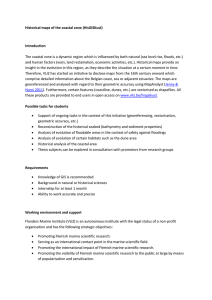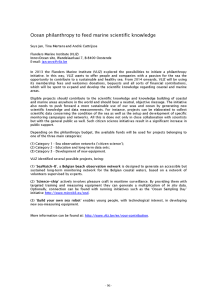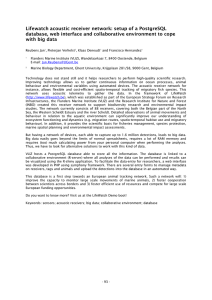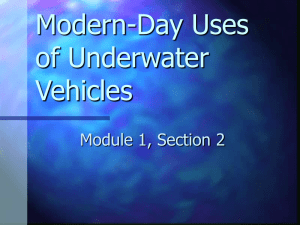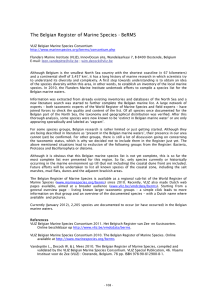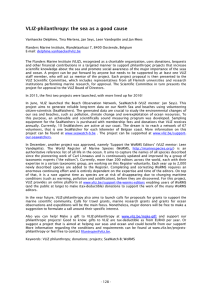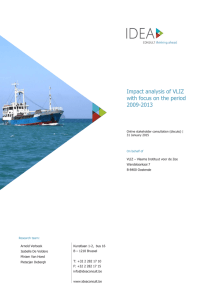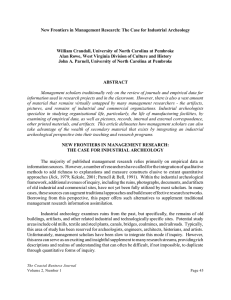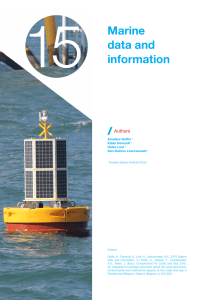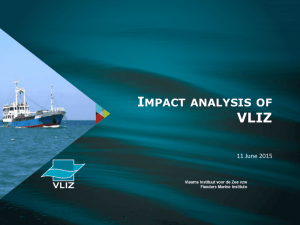Marine data archeology: a heritage for future science
advertisement
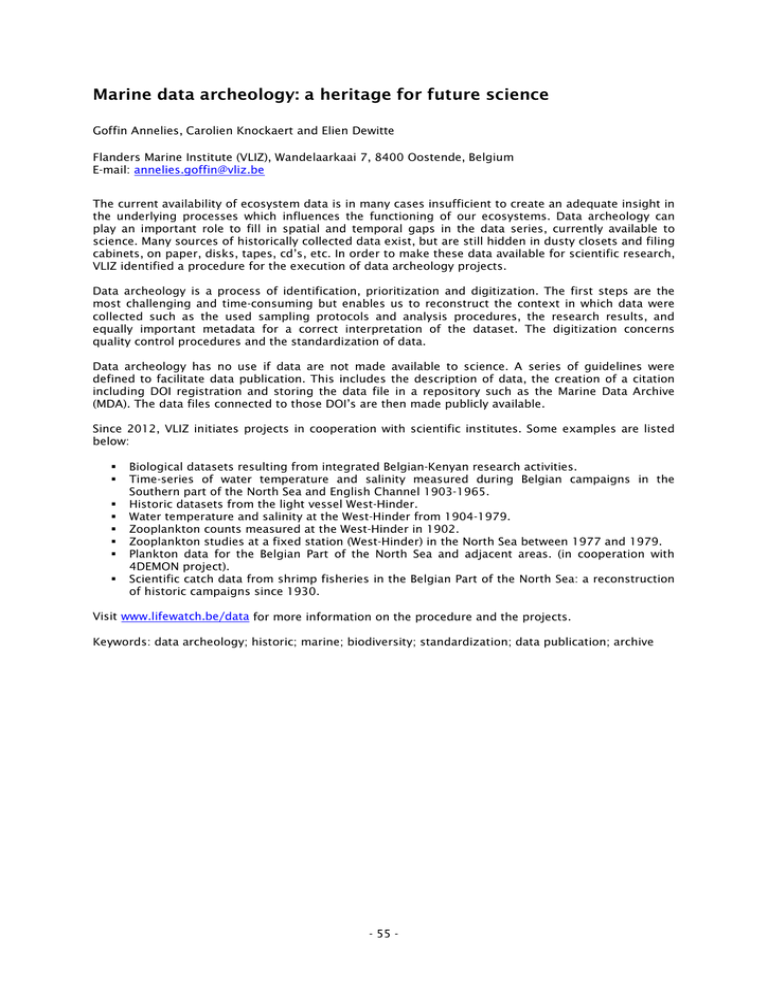
Marine data archeology: a heritage for future science Goffin Annelies, Carolien Knockaert and Elien Dewitte Flanders Marine Institute (VLIZ), Wandelaarkaai 7, 8400 Oostende, Belgium E-mail: annelies.goffin@vliz.be The current availability of ecosystem data is in many cases insufficient to create an adequate insight in the underlying processes which influences the functioning of our ecosystems. Data archeology can play an important role to fill in spatial and temporal gaps in the data series, currently available to science. Many sources of historically collected data exist, but are still hidden in dusty closets and filing cabinets, on paper, disks, tapes, cd’s, etc. In order to make these data available for scientific research, VLIZ identified a procedure for the execution of data archeology projects. Data archeology is a process of identification, prioritization and digitization. The first steps are the most challenging and time-consuming but enables us to reconstruct the context in which data were collected such as the used sampling protocols and analysis procedures, the research results, and equally important metadata for a correct interpretation of the dataset. The digitization concerns quality control procedures and the standardization of data. Data archeology has no use if data are not made available to science. A series of guidelines were defined to facilitate data publication. This includes the description of data, the creation of a citation including DOI registration and storing the data file in a repository such as the Marine Data Archive (MDA). The data files connected to those DOI’s are then made publicly available. Since 2012, VLIZ initiates projects in cooperation with scientific institutes. Some examples are listed below: Biological datasets resulting from integrated Belgian-Kenyan research activities. Time-series of water temperature and salinity measured during Belgian campaigns in the Southern part of the North Sea and English Channel 1903-1965. Historic datasets from the light vessel West-Hinder. Water temperature and salinity at the West-Hinder from 1904-1979. Zooplankton counts measured at the West-Hinder in 1902. Zooplankton studies at a fixed station (West-Hinder) in the North Sea between 1977 and 1979. Plankton data for the Belgian Part of the North Sea and adjacent areas. (in cooperation with 4DEMON project). Scientific catch data from shrimp fisheries in the Belgian Part of the North Sea: a reconstruction of historic campaigns since 1930. Visit www.lifewatch.be/data for more information on the procedure and the projects. Keywords: data archeology; historic; marine; biodiversity; standardization; data publication; archive - 55 -
